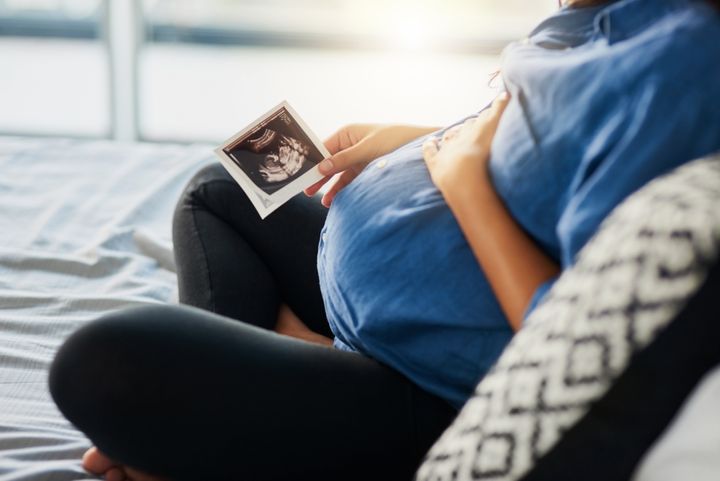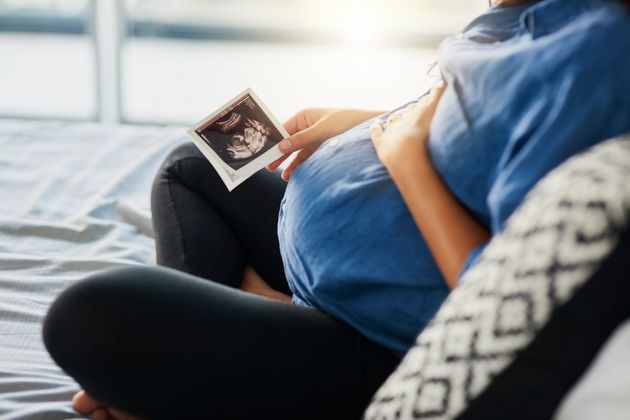Despite the fact that more and more people are waiting longer to get pregnant, having a baby later on in life still comes with a great deal of stigma.
The phrase “geriatric pregnancy” was once commonly used to categorise pregnancies in people over the age 35 before it was eventually replaced by the term “advanced maternal age.” Describing one’s pregnancy as geriatric or elderly was and is not only harmful, causing many people to feel high levels of anxiety about their so-called ticking body clock, it’s flat-out inaccurate.
Advertisement
While it’s true that the risk of experiencing pregnancy complications or infertility increases with age relative to those who are younger, the vast majority of people 35 and up have smooth and successful pregnancies. Not to mention, even if there is an issue, there are many tests and treatments available to help people over 35 go on to have healthy pregnancies in most cases.
“The most likely thing in these pregnancies is that absolutely everything will be fine,” Melissa Rosenstein, a maternal-fetal medicine specialist, and obstetrician and gynaecologist with the University of California, San Francisco, tells HuffPost.
Where the phrase ‘geriatric pregnancy’ came from
Advanced maternal age pregnancies occur when the mother is going to give birth after the age of 35. The risk of any issues goes up as you get older, according to Rosenstein.
But there isn’t anything special about age 35 when it comes to pregnancy risks and complications. It’s not like the risk of your baby having a chromosome abnormality is lower at 34 and suddenly sky rockets the next year. “It’s a gradual progression,” Rosenstein says.
Advertisement
The age 35 was selected decades ago when doctors needed a way to inform which pregnant patients received genetic testing. Back then, studies had indicated that people over 35 had a greater risk of pregnancy loss from amniocentesis – a procedure that evaluates the foetus’s genetics — and doctors decided that only people 35 and up would qualify for this type of genetic testing.
Now, amniocentesis is a much safer procedure, offered to all pregnant people, but there is some remaining stigma about being pregnant after 35.
These days, it’s much more common to get pregnant after 35 as more people delay parenthood and marriage in order to prioritise their careers and education, or because of other personal circumstances.
“Many to most of my patients are over 35 — it’s not really a big deal,” Rosenstein says.

Adene Sanchez via Getty Images
The actual risks of being pregnant after age 35
Women and people with uteruses are born with all of the eggs they will have in their lifetime, and as they age, their egg supply – and quality – diminishes. With that, the chances that something will go wrong with the chromosomes during ovulation – the release of the egg from the ovary – also increases.
Advertisement
Research has shown that pregnant people of advanced maternal age are more likely to experience ectopic pregnancy, chromosomal abnormalities, gestational diabetes, preeclampsia and need to undergo caesarean delivery.
The risk of infertility also increases as you get older — it may take you longer to get pregnant and you may have a higher chance of having a miscarriage if you get pregnant, according to Rosenstein. But if you have regular periods every month, there is a good chance that you will be fine.
This doesn’t mean that all people who get pregnant over the age of 35 are doomed. In fact, in the vast majority of advanced maternal age pregnancies, everything is completely fine.
“When you do studies, you see that the risk of complications is higher in the older women, but the absolute risk is still very low,” Rosenstein says.
According to Jill Purdie, obstetrician and gynaecologist, and medical director at Northside Women’s Specialists of Pediatrix Medical Group, we now have more accurate tests that can be done early in pregnancy to assess if the mother or foetus have any health issues.
Advertisement
“With early and routine prenatal care, many pregnancy complications can be caught and treated early before they cause a significant issue,” Purdie says. Certain lifestyle choices – like maintaining a healthy body weight and exercising – may help mitigate some of these risks as well.
That said, it’s really hard to predict who is going to have trouble getting pregnant, and being pregnant, in the future. If you are concerned, it’s worth talking to your doctor about how regular, or irregular, your menstrual cycles are and when your mother went through menopause.
Having a baby is a big decision, and Rosenstein says it’s important to do it when you’re ready, at whatever age that may be.
“Although there is some increased risk as outlined above for women of advanced maternal age in pregnancy, the majority of women are able to have a successful and healthy pregnancy at a later age,” Purdie says.





